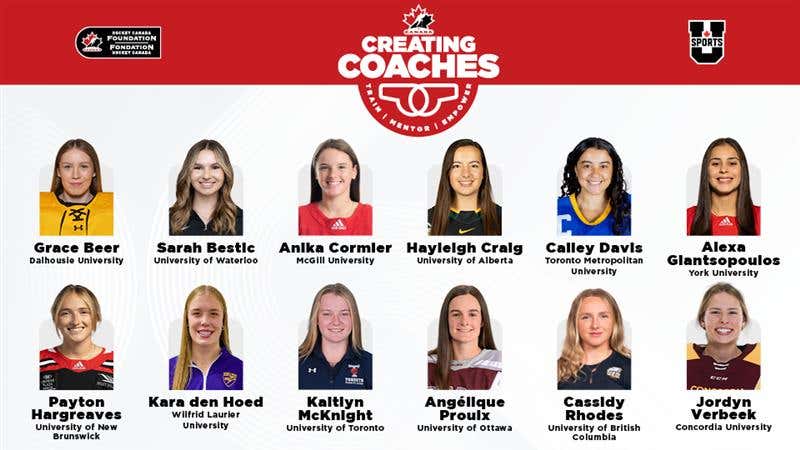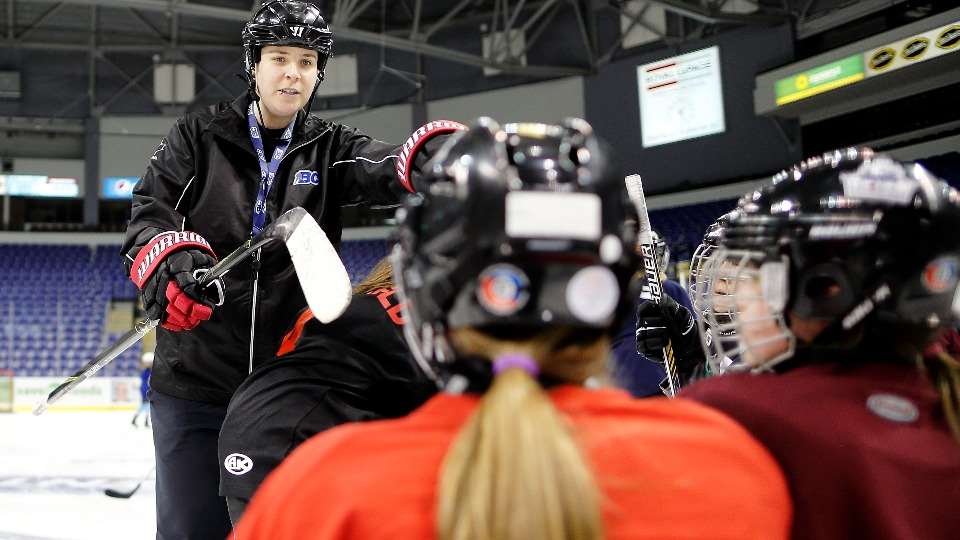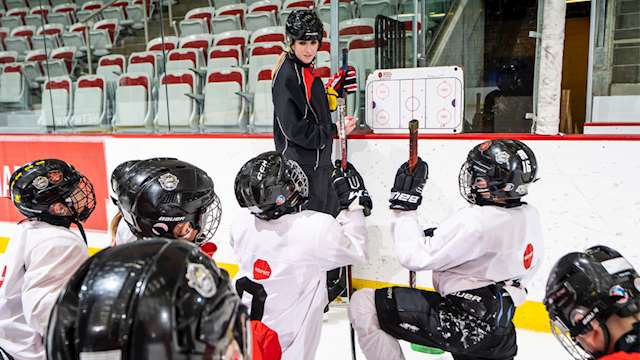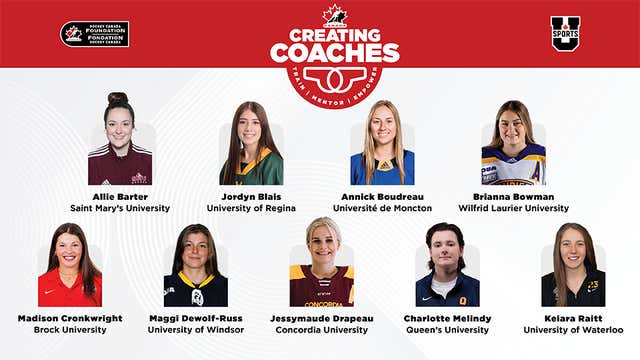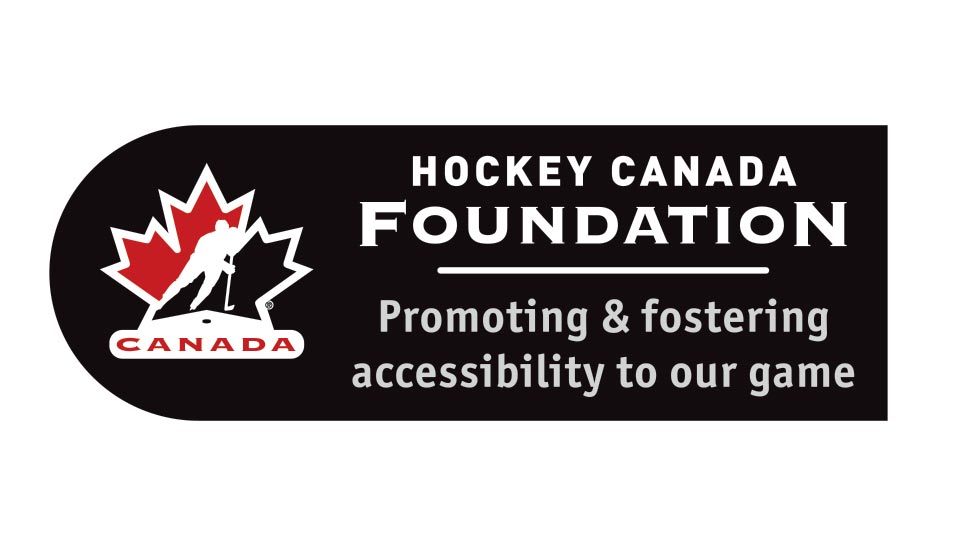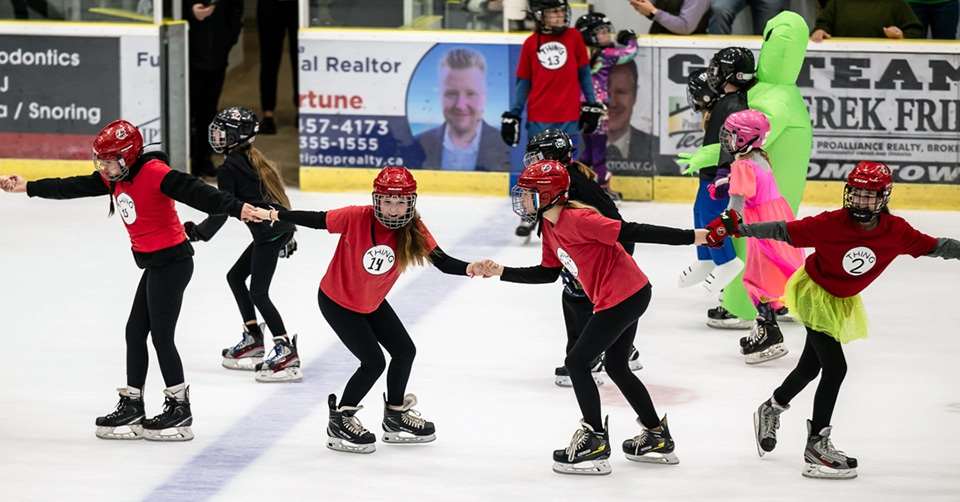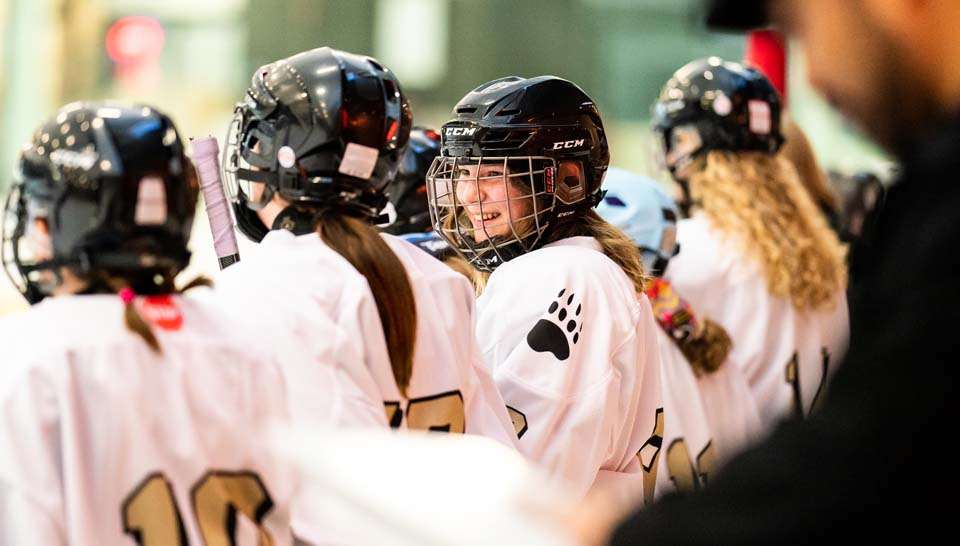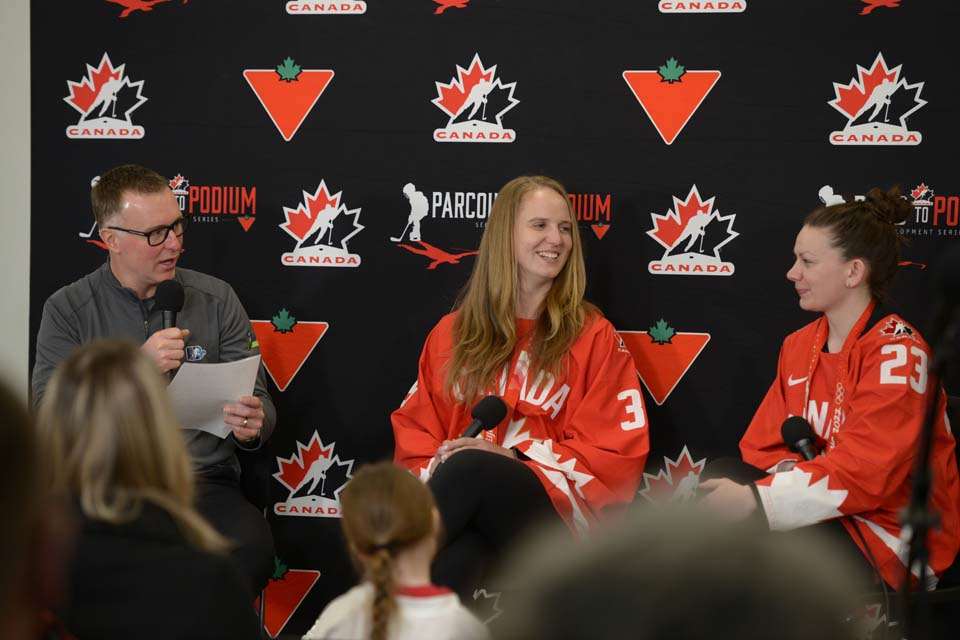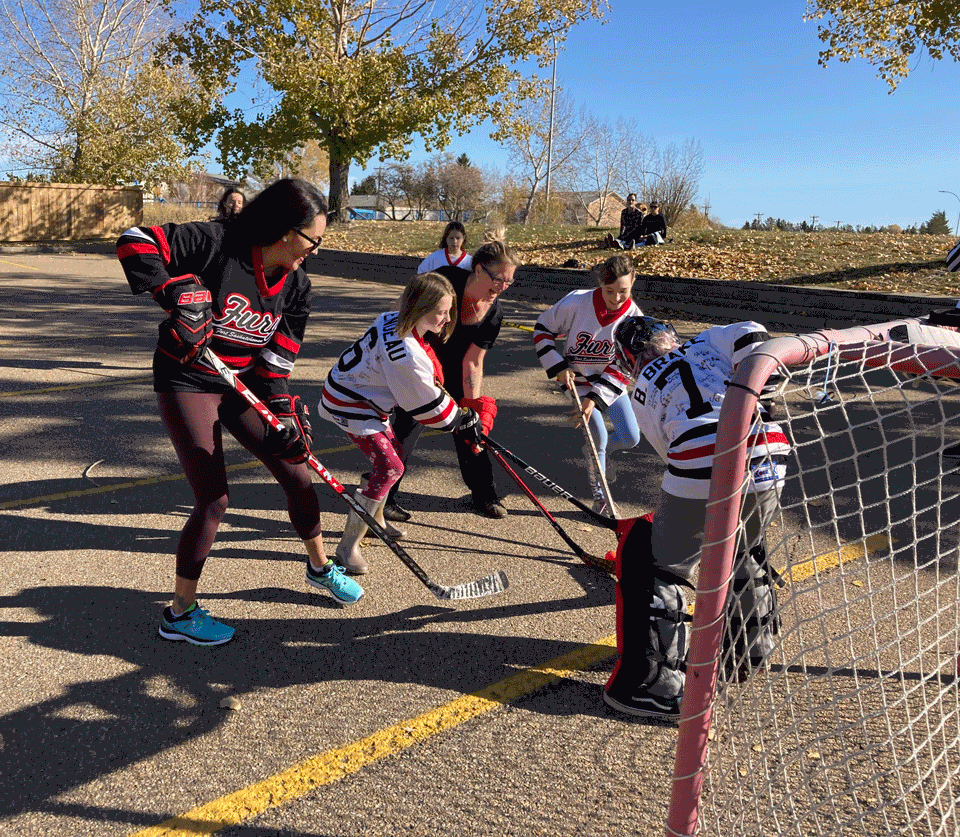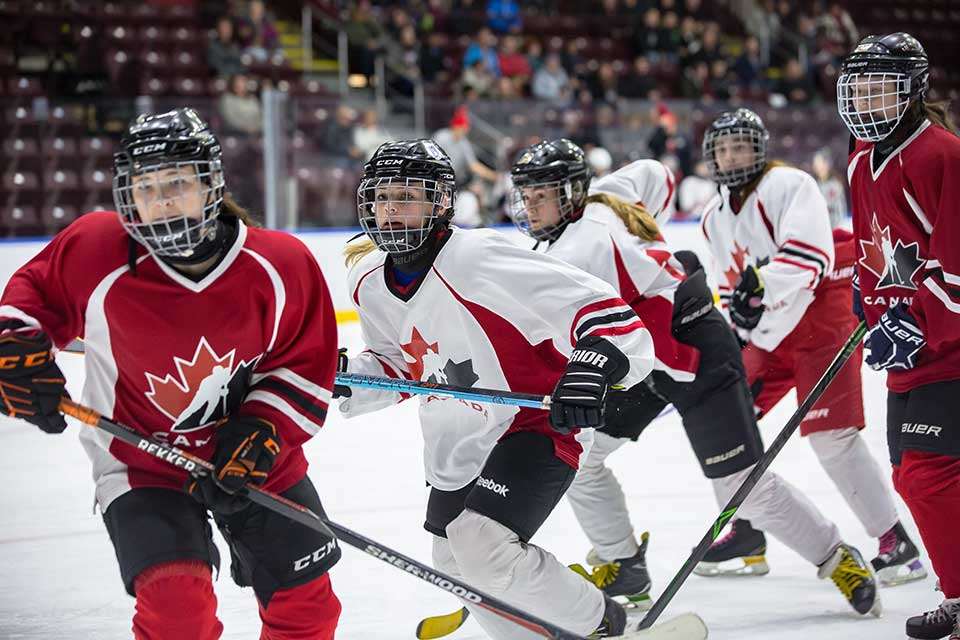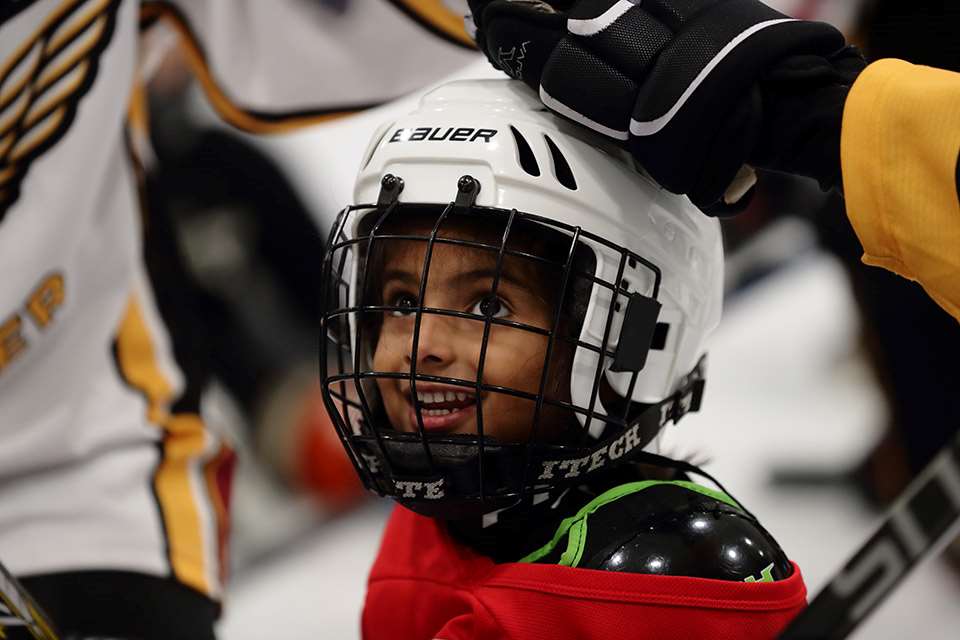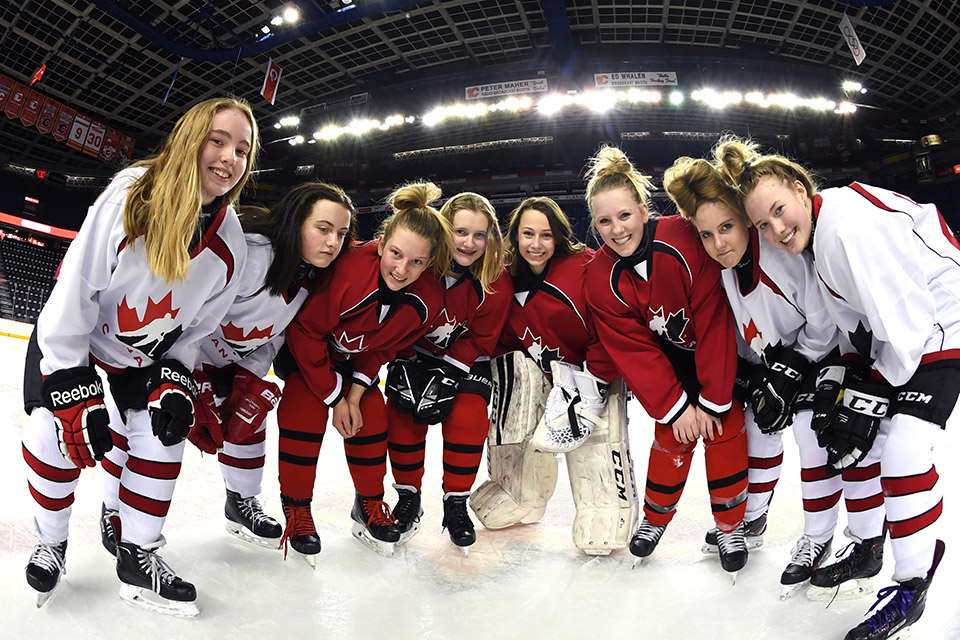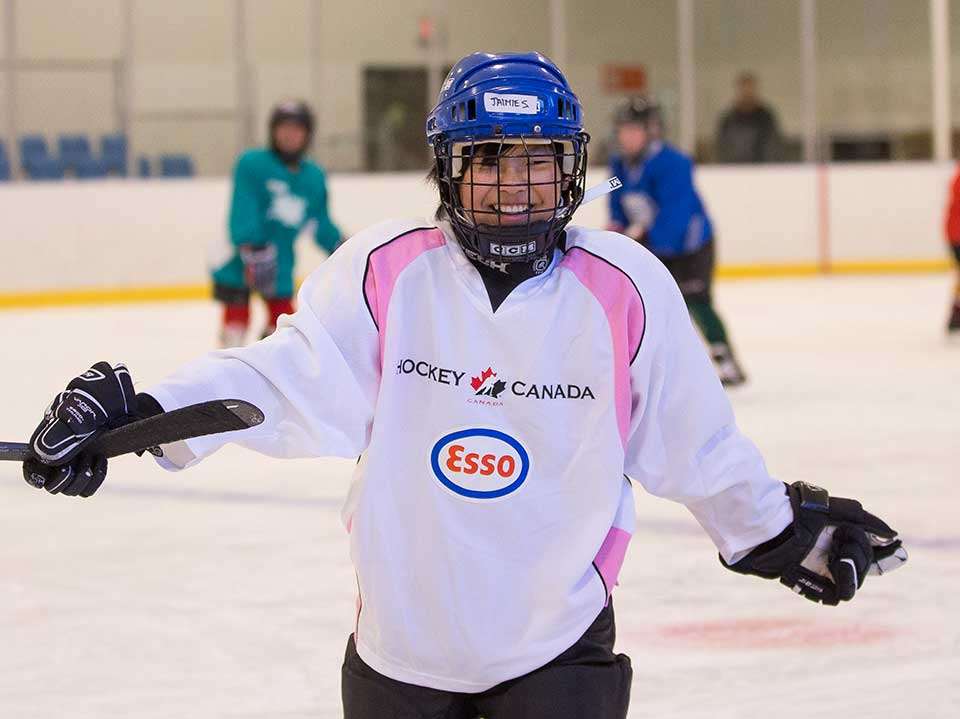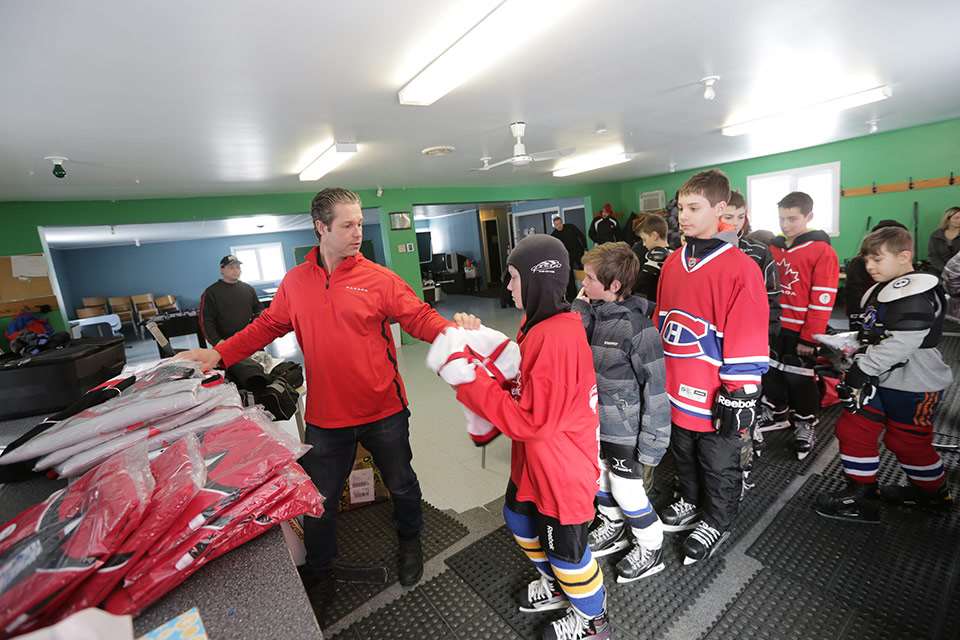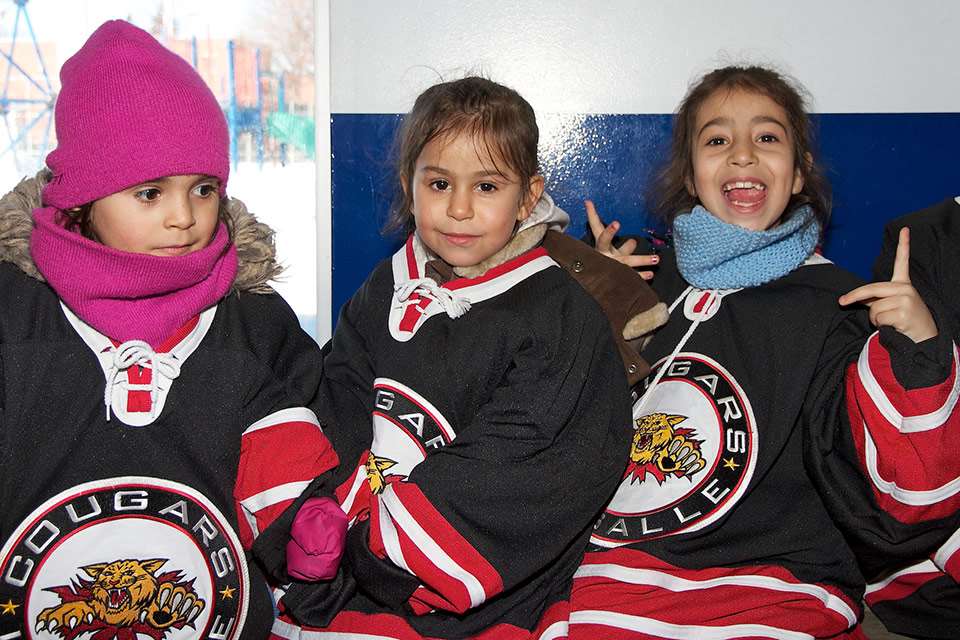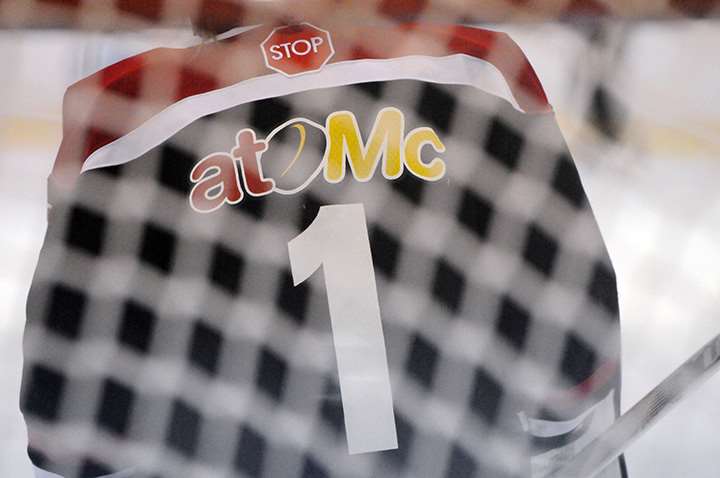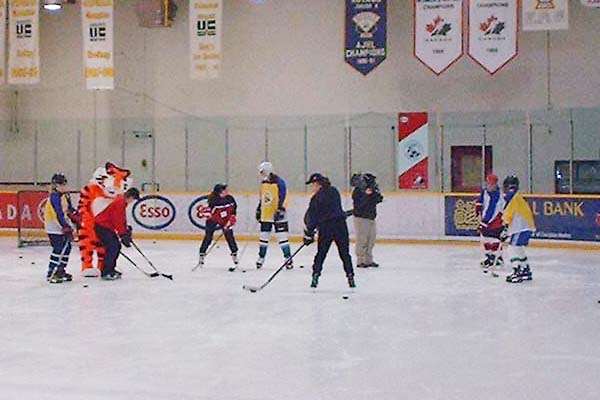Twelve student-athletes, representing all four U SPORTS conferences, have been selected to join the fifth cohort of the Creating Coaches program starting this season.
Creating Coaches
Purpose
Hockey Canada recognizes the advantages that exist to having women in coaching and leadership positions, and the importance of young players seeing qualified women behind the bench. Women in leadership positions have strong communication and team-building skills, as well as high emotional intelligence. They also demonstrate that sport is a safe and acceptable activity for girls. Increasing the number of women coaches at all levels of the games will not only increase the number of girls who choose to try hockey but continue playing, receiving all of the lifelong benefits that hockey has to offer along the way.
The Creating Coaches Program will provide selected senior student-athletes with the mentorship, resources, and support system required to ensure that their first coaching experience is positive and engaging, while also providing young female players with a female role model and leader in hockey.
The Program will also highlight the strength of the U SPORTS women’s hockey system, increasing the likelihood that girls will choose to play their university hockey in Canada. Girls who experience a woman coach are also more likely to transition into a coaching role at the conclusion of their playing career, continuing the positive cycle of influencing the recruitment and retention of girls and women in hockey.
Program Overview & Requirements
Senior (fourth- or fifth-year) student-athletes, nominated by their U SPORTS’ coach, will be selected to enter into the two-year Creating Coaches Program.
Once approved and selected into the program, student-athletes will be required to complete the following:
TRAINING:
- The required coach training based on the age and level of the team they are coaching (Coach 1, Coach 2, Development 1, Goaltending 1, Goaltending 2, etc.).
- Respect in Sport for Activity Leaders Online Training
- Keeping Girls in Sport Online Training
COACHING:
Hockey Canada recognizes the countless responsibilities of a student-athlete and will ensure that the Creating Coaches Program is an enhancement to the student-athlete experience and does not negatively impact academic or athletic commitments.
For these reasons, modifications to the following requirements can be accommodated by working with the Mentor Head Coach and Program Manager should a conflict arise.
- Serve in an Assistant Coach role of a U13, U15, or U18 girls’ team. Hockey Canada Members will help to facilitate this position.
- Attend (minimum) one practice per week.
- Attend (minimum) three games per month.
- Complete a monthly logbook to track participation, experience, and program feedback.
- Attend a virtual monthly connect and professional development session with the Program Manager and student-athletes to learn, discuss best practices, work through challenges, and develop a coaching network.
A member of the U SPORTS’ coaching staff of the selected student-athletes must be available to support their student-athlete in an informal mentorship role throughout the season.
Nomination Criteria
- Fourth- or fifth-year student-athlete participating on a U SPORTS’ women’s hockey team.
- Commitment to the Program for two years.
- If a student-athlete graduates and re-locates following the first year, a second team in their new location will be identified.
- Commitment to complete all program requirements.
- Must remain in good academic standing, as determined by their U SPORTS coach and academic institution.
By age 14, girls are dropping out of sport at more than twice the rate of boys. Not having fun is a top-four reason that girls leave sport, while the top three factors that make sport fun for girls are positive team dynamics, trying hard, and positive coaching. Positive team dynamics are about girls feeling a sense of acceptance and belonging, which results in trying hard and performing well. Girls state that positive coaching is achieved when the players are treated with respect, the team is encouraged, and coaches participate in practice activities.
Based on research and collaboration with subject matter experts in the field, below are Hockey Canada’s Top 10 recommendations to ensure hockey is a safe, welcoming, and positive space for all participants.
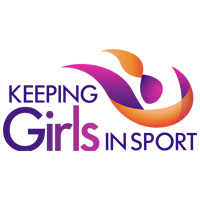 Hockey Canada strongly recommends that all coaches complete the Keeping Girls in Sport online module, developed in partnership by Canadian Tire Jumpstart, the Coaching Association of Canada, and Canadian Women & Sport. Keeping Girls in Sport is an online resource that helps coaches to create safe and respectful sport environment for girls. Register here for the online module and receive two NCCP Certification Maintenance points upon completion.
Hockey Canada strongly recommends that all coaches complete the Keeping Girls in Sport online module, developed in partnership by Canadian Tire Jumpstart, the Coaching Association of Canada, and Canadian Women & Sport. Keeping Girls in Sport is an online resource that helps coaches to create safe and respectful sport environment for girls. Register here for the online module and receive two NCCP Certification Maintenance points upon completion.- The Program Elements of Keeping Girls in Sport are:
- The Evolving Story of Girls in Sport
- Why Girls Aren’t Participating in Sport and Activity
- Mechanic, Energetic, and Relationship Injuries and Prevention
- How to Create Safe, Strong, Supportive Environments
- Why Girls Quit Sport
- Keeping Girls Healthy
- Key Themes for Keeping Girls in Sport
- Coaching Elements and Keeping Sport Fun and Engaging
- Coaches should use gender-neutral phrases such as player-to-player or individual defence, instead of man-to-man defence and refrain from using “you play/skate/shoot/etc. like a girl” as a derogatory remark – suggesting all women’s and girls’ skills are inferior. The successes of athletes and coaches have many Canadians aspiring to perform like a girl.
- Focus on athletic competence and accomplishments. Use unbiased adjectives and adverbs to describe athletes (e.g. athletic, skilled, powerful, focused, committed) rather than using descriptors that emphasize their femininity, sexuality or other stereotypical labels (e.g. tomboy, pretty, nice).
- Refrain from using men’s sports as a yardstick to measure the success or skill of women and girls. Value women’s sports for their exciting and competitive nature and ensure to highlight the successes of Canada’s National Women’s Team and PWHL.
- Lead a team-building activity for your team to get to know each other and set the tone for a fun and positive season.
- Complete individual skill testing for each player, focusing on individual improvement. Visit this link for more information on skill testing. Following the skill testing session, lead your team through their own goal-setting session. Allow the players to identify their own personal goals for the season as well as the overall goals for the team. This will allow the coaching staff to gain a better understanding of what the players are hoping to achieve this season. Define achievement as personal mastery, rather than by comparison to others.
- Close personal relationships with teammates are often a key reason that girls come to practice. Provide structured social time before, during or after practices through incorporating ice-breakers, fun games or discussions so that players can connect and share their experiences.
- Invite local women leaders in your community to speak to your team. Speaker options are not limited to hockey players or coaches but can include a local business leader, a strong community volunteer, an athlete from a different sport, etc.
- Host a Bring a Friend/Try Hockey event. Encourage each of your players to introduce one of their friends to hockey. Hockey Canada’s Esso Fun Day program provides funding to local hockey associations to offer an opportunity for girls to try hockey for free. More information can be found at hockeycanada.ca/essofundays.
- Invite young women, especially current or former players, to think about coaching. Inviting an older team in your MHA or your local university team to take turns volunteering during your team practices will provide your players with incredible role models and a vision of the future playing opportunities that they have (refer to the Creating Coaches program for an athlete-to-coach mentorship program template!).
For more information or if you have any questions, please contact womengirlshockey@hockeycanada.ca

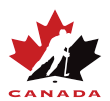
 HOCKEY CANADA
HOCKEY CANADA

